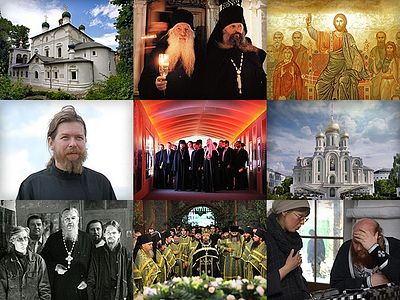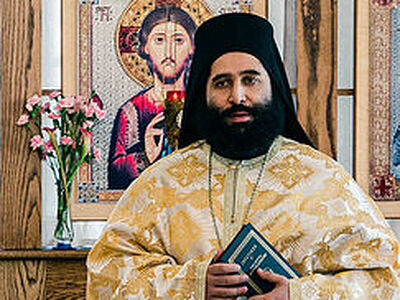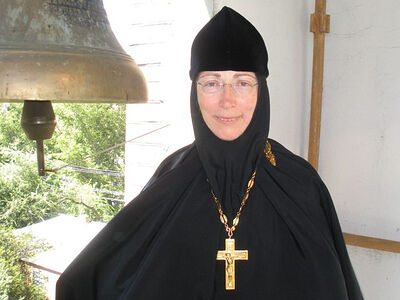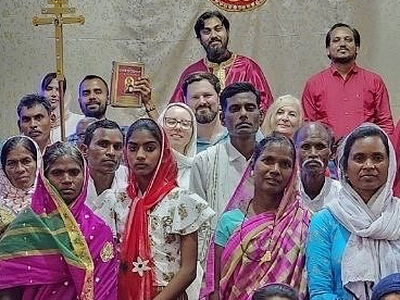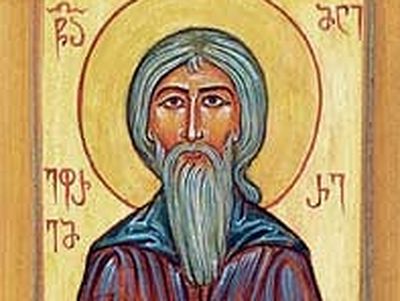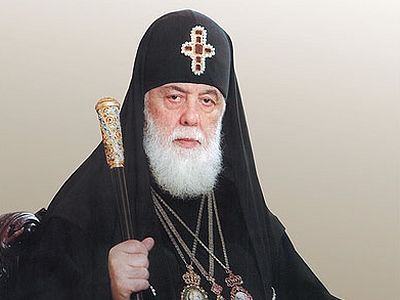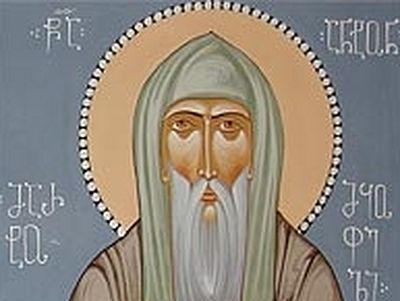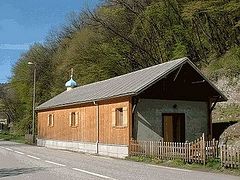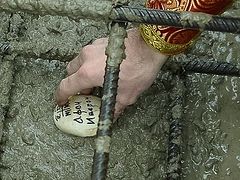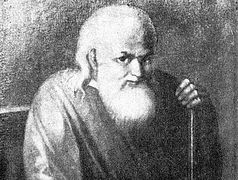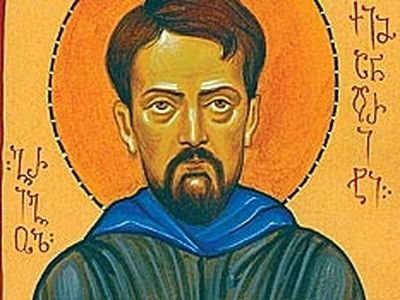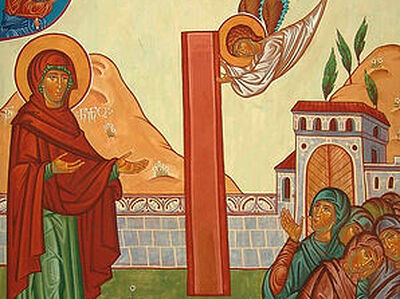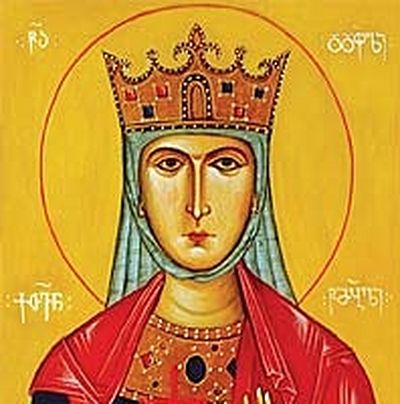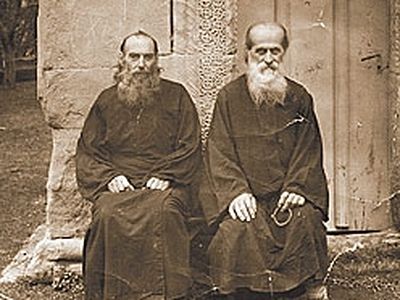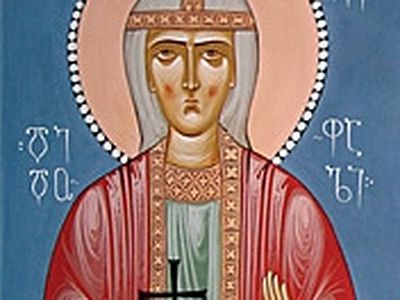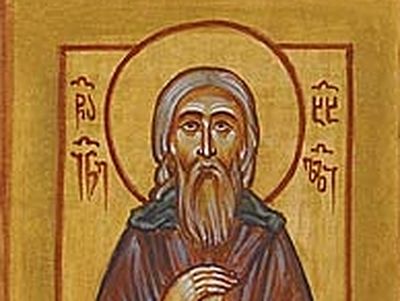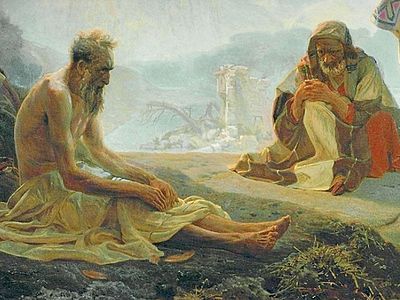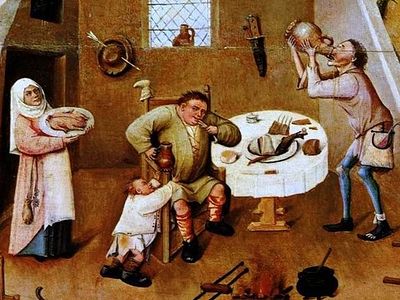Memory 18 (31) January
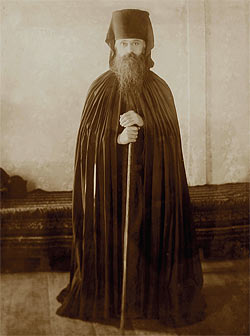
In the same year that his father died, Alexi journeyed to Jerusalem on a pilgrimage, and from there to Constantinople to visit his uncle, Islam Shushania, a successful merchant and a clever and pious man. During this visit, Alexi became fascinated with the trade industry and resolved to become a merchant as well. But he would soon discover that God’s will was different from his own.
One day Alexi borrowed a small icon of St. John the Baptist from his uncle, confined himself to his room, and there began to experience great inner warfare. He was moved by a profound love for his mother, sisters, brothers, and friends, but at the same time he sensed an invisible force calling him to the spiritual life.
After several agonizing hours, Alexi finally asked himself, “How can I fulfill my father’s will? He entrusted me with the responsibility to look after the family—how can I reconcile this with God’s calling?” To his great wonder, an invisible instructor answered him, saying, “If you die now, who will take over your responsibilities?”
The answer was clear. “God will!” Alexi proclaimed. And he heard the voice again.
“So die to the world, entrust everything to God, and He will minister to your family.”
1 Hieromonk: a monastic priest. The encounter transformed Alexi’s life. Afterwards he confined himself to his room for months, reading the Holy Scriptures, and keeping a strict fast. Witnessing the radical change in Alexi’s way of life, his uncle thought it would be best for them to leave Constantinople and return to Georgia.
It was not long before Alexi’s loved ones realized he had made a covenant with God, and that he would enter the monastic life. His brothers and sisters were distressed upon hearing the news, but his mother gave thanks to God and blessed her son.
At the age of twenty Alexi moved to Teklati Women’s Monastery. He began to lead a strict ascetic life and went from village to village, caring for those ill with tuberculosis, cholera, and other serious illnesses, and burying the corpses of the homeless.
Several years passed, and many became convinced that Alexi was a fool-for-Christ. He preached theWord of God with intensity, and his life was an example for many. His preaching inspired his mother, Elene, his younger sister Salome, and his brother Besarion to join him in the monastic life. After he was tonsured a monk, Besarion made a pilgrimage to Jerusalem and remained there for several years. Because of his exemplary service to the Lord, he was ordained a priest at Martvili Monastery. Later he was tonsured into the great schema.
Alexi also spent time on Mt. Athos. After returning from the Holy Mountain, he made a pilgrimage to the Kiev Caves Monastery, then returned to Georgia to continue his labors.
Around the year 1885 St. Alexi moved to Gelati Monastery, where he continued to study and produced several original works. In 1886 he was reassigned to Khobi Monastery and ordained a deacon by Bishop Grigol, and in 1888 he was ordained a hieromonk. Two years later, in 1890, he became ill and returned to be with his mother and sisters at Teklati Monastery.
According to God’s will his health was restored, and in 1891 Alexi fashioned a cell for himself in the mountainous village of Menji (also called “Archangels’ Hill”), near the place where he was born. He gathered his disciples and undertook a stricter ascetic life. Fr. Alexi’s health was so improved that he was able to celebrate the divine services again. The holy father would receive alms, but he distributed most of what was given to him. He divided the alms in three parts: the first he put aside for his personal needs, the second, for the church and its guests, and the third, for the poor and infirm.
St. Alexi kept a life-size cross in his cell, and when he prayed he supported the cross on his back, since it reminded him of the position in which St. Simon of Cyrene carried the Holy Cross to Christ’s Crucifixion on Golgotha.
In spite of his strict ascetic life, Hieromonk Alexi was remarkably close to the people in his community and was loved by many for the spiritual warmth that he radiated.
After many years the strict ascetic life finally took its toll on Fr. Alexi’s health. He dismissed his pupils and spent the last years of his earthly life (from around the year 1915) with his cousins, the schemanuns Akepsima and Pasto. St. Alexi reposed January 18, 1923, frail from a long and labor-filled life in the service of the Lord.
For forty days after his death, the schemanuns Akepsima and Pasto remained in his cell for fear that the Communist government’s henchmen would destroy his humble dwelling. Later they buried Fr. Alexi’s body at Teklati, and themselves began to labor at the Archangels’Monastery. With the blessing of Metropolitan Eprem of Batumi-Shemokmedi and Chqondidi, Schemanun Akepsima and Abbess Pasto translated Fr. Alexi’s incorrupt relics from Teklati to the Archangels’ Monastery and buried them near the east wall of the temple on January 8, 1960. St. Alexi was canonized on September 18, 1995.
The heavens above were exalted by thy holiness, O Holy Father Alexi, and with the nine ranks of angels thou didst glorify the Most Holy Trinity. Intercede with Christ to save our souls!

